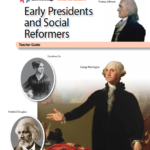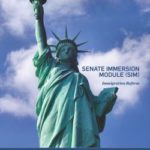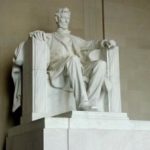In this lesson, students will gain an understanding of the separation of powers using role playing and discussion. Students will identify which parts of the Constitution provide for the branches of our government, and will categorize public officials into one of these three branches.
Founding Documents: Federalist and Anti-Federalist Papers Podcast
Ten days after the Constitution was signed at the Old Philadelphia State House, an anonymous op-ed appeared in the New York Journal. Signed by “”Cato,” it cautioned readers of the new Constitution to take it with a grain of salt. Even the wisest of men, it warned, can make mistakes. This launched a public debate that would last months, pitting pro-Constitution Federalists against Constitution-wary Anti-Federalists. It was a battle for ratification, and it resulted in a glimpse into the minds of our Framers – and a concession that would come to define American identity.
Our guides through the minds of the Federalists and Anti-Federalists are Claire Griffin and Cheryl Cook-Kallio.
This short episode includes a one-page Graphic Organizer for students to take notes on while listening, as well as discussion questions on the back side.
Judicial Nominations
Conversation starter using a political cartoon, which compares the public’s interest in judicial nominations with contestants on the television show “American Idol.”
It’s My Life
In this lesson, students will think critically about the legitimacy of government intervention in their lives. They will compare individual rights with the public good, and identify some justifications for government intervention.
Individuals Influence Public Policy
In this lesson, students are presented with a controversial school policy and given two viewpoints on the issue. They are then divided into groups, and asked to provide reasons for and against the policy. After deciding whether the policy should be changed or not, the students are asked to reflect on why policies might change and what factors influence policy decisions.
Freedom of Assembly: The Right to Protest
This lesson will focus on freedom of assembly, as found in the First Amendment. Students will consider the importance of the right to assemble and protest by analyzing cases where First Amendment rights were in question. Using the case National Socialist Party of America v. Village of Skokie, students will consider if the government is ever allowed to control the ability to express ideas in public because viewpoints are controversial, offensive, or painful. Students will use primary sources and Supreme Court cases to consider whether the courts made the correct decision in the National Socialist Party v. Skokie case. Students will be able to form an opinion on the essential question: Is the government ever justified to restrict the freedom to assemble?
Public Participation Goes Viral
Social media revolutionized how the public and candidates interact – but how effective are the latest tools for shaping election outcomes?
American Reformers (CKHG Unit)

This unit (the second part of Early Presidents and Social Reformers) focuses on the efforts to improve American society in the early 1800s. Across 6 lessons, students learn about the temperance movement, free public education, the abolitionists’ crusade to abolish slavery, and the early women’s rights movement. The unit explores early reformers’ legacy in ongoing modern-day struggles for equality and civil rights.
Mandate: The President and the People
Immigration Reform (SIM Lesson Plans)

The purpose of this learning module is to help students learn how a U.S. Senator might address an issue of public significance under consideration in the United States Congress. Learning about personal, state, party, and national interests will help students understand representation more fully. The pre-visit examines how elected representation works. The post-visit lesson supports critical analysis of each student’s strategic choices and votes, preparing them to defend their efforts.
